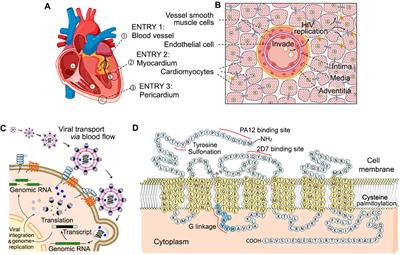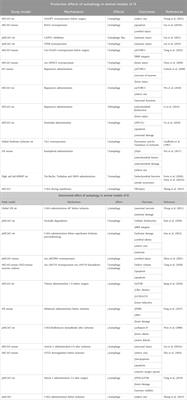REVIEW
Published on 03 Mar 2025
Molecular mechanism on autophagy associated cardiovascular dysfunction in Drosophila melanogaster
doi 10.3389/fcell.2025.1512341
- 577 views
1,647
Total downloads
6,052
Total views and downloads
REVIEW
Published on 03 Mar 2025
REVIEW
Published on 17 Jul 2024

REVIEW
Published on 25 Mar 2024
